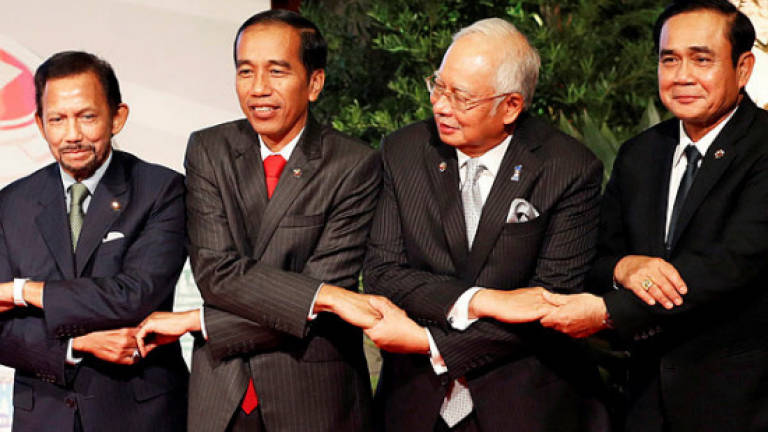Asean leaders sign agreement on protecting migrant workers

MANILA: Leaders from the 10 Asean countries today signed the Asean Consensus on the Protection and Promotion of Rights of Migrant Workers, aimed at safeguarding millions of migrant workers across Southeast Asia.
Philippine President Rodrigo Duterte, chair of Asean this year, led his guests, including Prime Minister Datuk Seri Najib Abdul Razak, to sign the document at the end of the three-day 31st Asean Summit and Related Summits.
The leaders signed the agreement a decade after the signing of the Cebu Declaration on the Protection and Promotion of the Rights of Migrant Workers.
The Asean Consensus document, among its many important provisions, upholds fair treatment of migrant workers with respect to gender and nationality, provides for visitation rights by family members, prohibits confiscation of passports, and overcharging of placement or recruitment fees.
It also protects against violence and sexual harassment in the workplace, regulates recruiters for better protection of workers, and respects their right to fair and appropriate remuneration and benefits and their right to join trade unions and associations.
Like all Asean agreements, the implementation of the Asean Consensus, which is non-legally binding, would be subject to the respective laws of the organisation's member countries.
According to media reports here, the Philippines and Indonesia have been pushing for a legally-binding framework, while Singapore and Malaysia have had reservations about it as it may encourage more undocumented migrant workers.
Last week, Philippine Department of Foreign Affairs spokesman Robespierre Bolivar said the agreement was "a centrepiece of the Philippine chairmanship" of Asean, which has a combined population of over 600 million.
According to the World Bank, nearly seven million or two-thirds of about 10 million international migrants living and working in Asean come from within the region.
Cambodia, Indonesia, Myanmar, the Philippines and Vietnam are seen as the main 'sending' countries, while Malaysia, Singapore and Thailand are the main 'receiving' countries. — Bernama